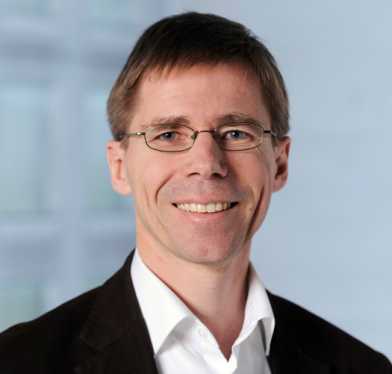10
Reminder: Branco Weiss Fellowship for postdoctoral research

Apply with a groundbreaking research idea to secure financial support for up to five years, working at an academic institution of your choice anywhere in the world. Applications for the 2019 fellowship intake will close on 15 January 2019. Read information on eligibility.
iGEM-team ETH Zurich nominated for four prizes - and praised by the audience

The AROMA developers from ETH Zurich won the iGEMer’s audience prize and were nominated for the prizes Best New Application Project, Best Presentation, Best Product Design and Best Hardware. At this year’s competition organised by the International Genetically Engineered Machine (iGEM) Foundation the synthetic biology projects of 365 teams from around the world were presented. AROMA is the first robot capable of ‘bio-smelling’: a cell-based biosensor leads the robot to the source of volatile molecules.
D-BSSE spin-off is part of European quantum technology flagship

Ten international partners from academia and industry including D-BSSE spin-off Zurich Instruments join forces and build a hybrid high-performance quantum computer. The new EU project OpenSuperQ is funded with €10 Mio. and is part of the large European flagship initiative on Quantum Technologies. The main role of Zurich Instruments is to provide the quantum processor control system that executes the quantum algorithm and reads out the qubit states.
Precision medicine with light

Light of appropriate intensity and wavelength can trigger changes in gene expression and other cellular activities. Optogenetic medicine is therefore opening up exciting opportunities for precision-guided medicine. In an article published by Perspectives in Medicine, D-BSSE professor Martin Fussenegger and his former PhD student Haifeng Ye describe applications of ontogenetic-based biomedical tools to treat neurological diseases, diabetes, heart diseases, and cancer as well as bioelectronic implants.
Analysis of gene mutation data helps identify novel cancer subgroups

Gene mutations may lead to cancer development and tumour progression. The statistical analysis of cancer data from different tissues can guide drug repositioning as well as the design of targeted treatments. In an article published by Nature Communications, researchers around D-BSSE professor Niko Beerenwinkel together with colleagues from other institutions modelled mutational interactions in over 8’000 patient samples from 22 cancer types and uncovered new cancer subgroups.
Joël Mesot appointed new ETH President

Switzerland’s Federal Council has appointed Joël Mesot, Director of the Paul Scherrer Institute (PSI), as the new President of ETH Zurich. On 1 January 2019, Joël Mesot will take over from the current President, Lino Guzzella, who has continued to build the university’s formidable international reputation over the past four years.
iGEM 2018 team presents robot for odorant measurements

A team of eight ETH Zurich students including four students from D-BSSE joins the iGEM competition in Boston, USA, which will be held on 24 - 28 October. The students will present AROMA, the first robot controlled by a fast cell-based biosensor. The robot localises the source of volatile molecules in a fast and specific manner. Best of luck, Team ETH, we keep our fingers crossed!
D-BSSE Meets Industry: Biowarfare, bioterrorism and biocrime - Myths and realities

On 7 November, Dr. Felix Gmünder, Global Biosafety & Biosecurity Expert at Basler & Hofmann AG, will talk about the intentional use of harmful biological agents such as bacteria, viruses or toxins to cause widespread harm and fear. Are there real trheats and risks from bioterrorism? How realistic and effective are countermeasures and controls? Register via the website of D-BSSE Meets Industry.
Botnar Research Centre for Child Health: Professor Daniel Müller about success measures and challenges ahead

On 19 September, the University of Basel and ETH Zurich co-founded the Botnar Research Centre for Child Health (BRCCH) in Basel. The centre is funded by a CHF 100 million contribution from the Fondation Botnar. In an interview, D-BSSE Professor Daniel Müller describes the unique opportunity to translate the fantastic innovations in biomedicine to cure diseases in children in developing countries.
Regulating gene transcription using light

Researchers led by Mustafa Khammash have developed a new method that uses blue light to control the transcription of DNA into RNA in single cells. The technology could also be used in tissue engineering and stem cell research.